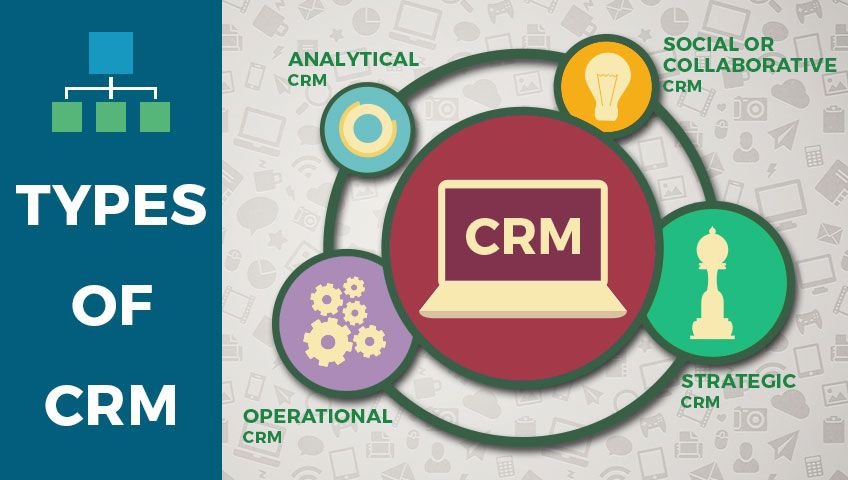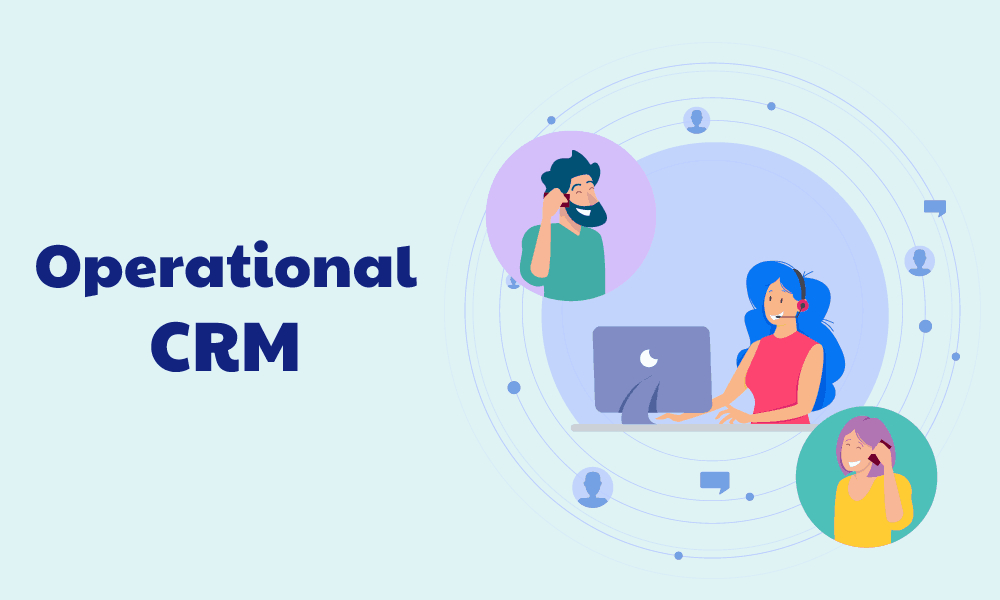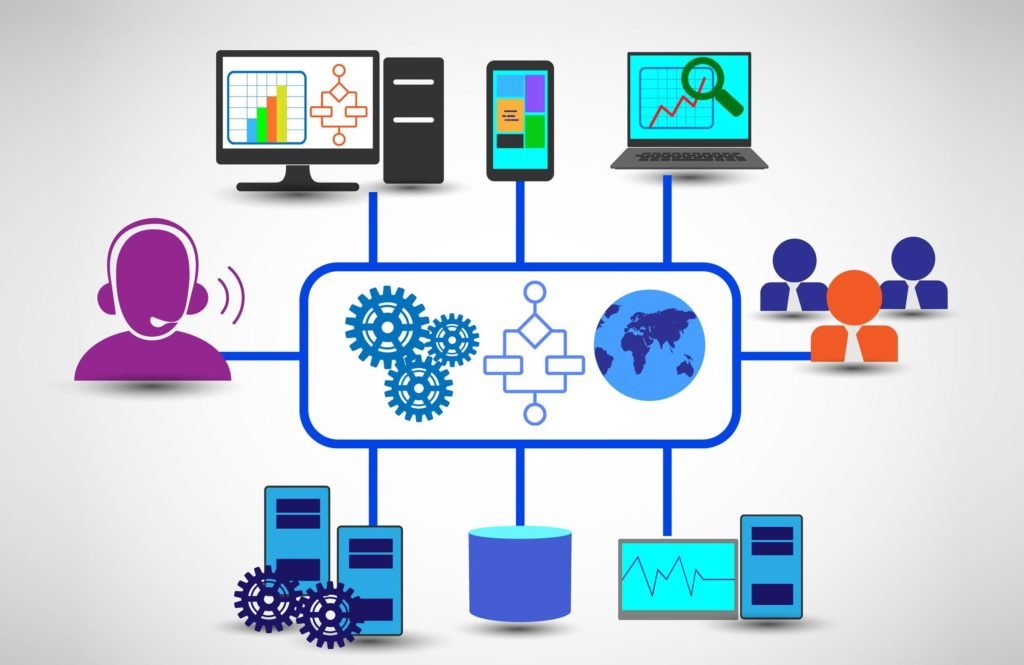Introduction

In Earlier Times, All the Companies used to store Data in offline modes such as databases where they can keep all the essential information of customers, products interested in, and all the information which is required by the companies.
Before The Introduction of Different types of Customer Relationship Management ,it was very difficult for the employees to store and save the data from cards or sheets to offline databases and it usually takes days or weeks to store data in Offline mode.
In Order to save time in data entry and improve the efficiency of the business,
1987 Was the year when Mike Muhney and Pat Sullivan From Texas Introduced the first Customer Relationship Management software.
In order to make the company self-efficient and all the data can be stored in one place that is online CRM software without any problem.
As Time flies, the development of CRM is increasing day by day and various IT companies enter into the line of development of the different types of customer relationship management vary from industry to industry.
Before the introduction of CRM, we don’t have enough data about customers how and when to contact our customers, at that time we may lose customers because of less customer satisfaction and they can easily switch to other companies.
Afterward with the up-gradation of various categories of CRM Now, we can easily see customer data and do proper Follow up of the customer on regular basis, through with we have regular contact with customers and there are fewer chances to lose the customers.
what are the various types of customer relationship management strategies.
There are different classification of CRM are as follows :

Based on Installation
On-Premises CRM
On-premises CRM is a CRM that is installed on the premises of the company.
These are self-hosted CRM that gives full control to the company related to the data.
On-premises CRM Is generally cheaper than cloud-based CRM as we don’t spend a certain amount on monthly plans.
Cloud-Based CRM
Cloud-based CRM software is not a self-hosted CRM as this is hosted on a CRM service provider.
This type of software can be used by customers through the internet and without the internet we can’t do any data entry over crm.
This Software is popularly known as software as a service (saas).
This CRM software is generally costlier than On-Premises CRM
Another types of crm strategies is Based On Functionality
Operational CRM

Operational CRM is the CRM that helps us to improve the operation of the business through proper automation of sales, marketing, and services.
It also helps us in maintaining and developing a good relationship with the customers because all the data related to the customer are stored in CRM.
Operational CRM is really suitable for the people who are developing and creating a relationship with customers in order to get sales from it and the most important thing supported by market personnel is giving customer after-sales services.
This is only possible because CRM gives them regular update about the clients whose service is due and update them regularly with proper notification so that no client will be left behind for after-sales service.
Marketing Automation
Marketing automation plays a very major role in the marketing of the products and services of the company.
In marketing automation, all the data related to campaigns or ads run by the company and leads generated from that campaign can be easily stored and integrated from one social media channel to CRM which not only helps us to save the data in CRM but also save the time from it.
SalesForce Automation
SalesForce automation is another process in order to get all the sales data streamlined from lead generation to the closing of sales. All these data are not only helpful for the company but also for the sales staff member from that all employees can get to know about whom to meet and when to meet and once the sales are matured then they can be updated on CRM as converted leads.
If some client refuses to meet or shift the day to another day then this CRM also helps them to give notification about the day when they have to meet and which employee has the duty to meet them.
This plays a vital role in the follow-ups of the clients.
Service Automation
The final step after marketing and salesforce automation is service automation. All the company’s reputation depends only on after-sales service or customer service. If a company is satisfied with the client then it not only builds satisfaction but also trust among the customer. CRM helps them to save the complaints of the clients in a separate section where they can check whose complaint is received and pending, This helps the company to solve the complaints of the clients at the right time.
Analytical CRM
The other type of customer relationship management software is Analytical CRM Which is generally used by the professionals such as Data analysts, Accountants, and Business intelligence Professionals.
Analytical CRM helps them to provide detailed analytics about the company. Generally, the data of Analytical CRM is categorized into 4 major categories as Customer Data, Marketing Data, Sales Data, and Service Data.

Customer data
This analytical data helps to save the personal data of the customer mainly the name, address, age, marital status, income, and educational background.
This data helps them to get the best clients out of the customer data list in order to make the business more profitable.
This data gives you an exact picture about to whom, when, and which client we have to focus on in order to get sales from it.
Marketing data
The other main reason and benefit of analytical CRM is that it gives us detailed analytics about the marketing data.
The campaign can be run after getting an insight report about the customers. On the basis of data, we can run ads to attract customers to purchase products.
Sales data
Analytical CRM helps them to manage sales data in a very efficient way as CRM can provide exact figures about the sales and to whom they sell the products.
Sales data can be available in weekly, monthly, and quarterly reports, so that compare the monthly sales data where they outperformed and also helps them to where they can focus on increasing the sales of the products.
Service data
Service data is another main part of analytical CRM where they can manage all the data related to customer complaints, customer satisfaction, sales efficiency, and performance of the employee.
The main thing if we receive complaints and sought out within specified period this means we satisfied the client and this the foremost thing in every business.
Collaborative CRM

Collaborative CRM is another type of CRM that manages all the data in a collaborative form which means it can integrate and synchronize all data in one place.
This means that the data of all the departments can be saved in one place such as marketing, sales, employees, and customers data can be integrated with each other and which saves time and money as well.
CRM Companies in India
Conclusion
To Conclude, We have discussed all the different types of CRM available for different types of industries and professionals. Every small business and professional can demand the CRM as per their need and they may be customized as well. CRM is not only to store data related to customers but also helps them in order to increase sales, better marketing strategy, and last but not least customer satisfaction and support and services.
This also gives them detailed data and reports weekly, monthly, quarterly, and yearly wise which gives companies the exact performance of the company on the basis of that they can take corrective measures.
Also Read Out Our Latest Post Related To Learning Management System
